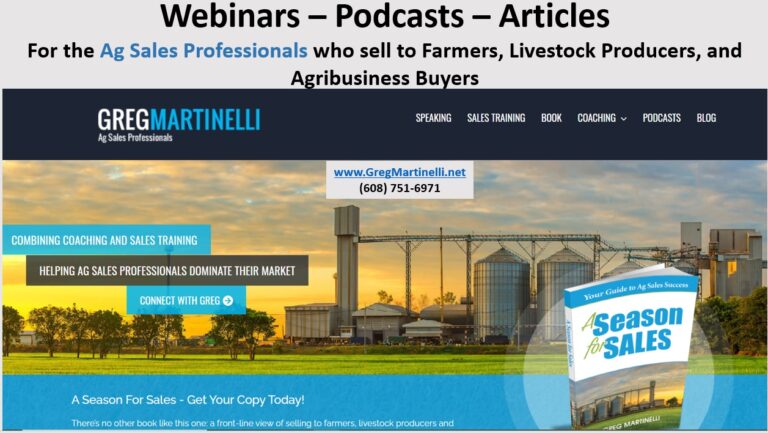
Live up to everything you promised your prospects and customers
We are almost at that time again. It’s 2019, which is only one short year away from 2020, which is, of course, a big election year in the US, which of course means we will be inundated with advertisements, debates, and those overly discussed, “campaign promises”.
Before I go any further, please understand this is not a political article. Nor is it in favor of one party or the other. Also, I do want to recognize that we are lucky to have a system where we have the freedom of speech to make these promises and the freedom to run for office. However, by the time it’s all over and the winner is in office, most of us can’t remember nor understand the full impact of the promises that were made. We are just worn out and want the advertisements to end already.
As salespeople, we follow a similar pattern when calling on prospects. We go through a long campaign of making promises on our products and services and end up either gaining a customer or not. Our customer votes with their money.
Our promises are the products and services we provide. Typically, we have a set of stocked products and services, which are designed for the majority of our customer base. However, they rarely cover every customer’s needs or solve every customer’s problems.
- we have a 12% textured horse feed because that’s the most commonly sold feed.
- we deliver on Tuesdays and Fridays because that’s when our route truck is set up for that area.
- Our supplement is a proven treatment for coccidiosis because that’s the most common ailment in poultry.
All is good until you are three months into the selling process with your prospect. You are making good progress with them and then there’s that moment. It can be deliberate or it can be so subtle and quick that the words fly out of your mouth before you even have time to think. The moment I’m talking about is when your prospect has a possible problem of doing business with you.
- You stock a 12% feed, but they currently sell a 13%
- You only deliver this area on Tuesdays and Fridays, but they need a Monday delivery
- Their chickens are having more issues with E. coli than Coccidiosis.
As the salesperson in this situation, what do you do? This could be a show stopper. You could lose the sale over a delivery issue, over 1% protein or over a potential health issue that your product “might” help. I know what you are saying as you read this article or listen to this podcast. You say, “Be 100% honest and open about your limitations,” and I couldn’t agree with you more. Here’s the problem. That’s not always what you, I and countless other salespeople actually do. We want our products to solve our prospect’s problems. We want so badly to be the right fit, that we get caught up in the moment and don’t allow these minor issues to get in our way. Why and how do we make sure to keep our promises?
Why we make campaign promises: Here’s why we don’t always stop the discussion and “be honest”. First, the actual answer is a little murky.
- You can deliver on Mondays. In fact, you delivered this area once before on a Monday. Barb runs the truck dispatch and you have a good working relationship with her. Maybe you can get this prospect delivered on a Monday. So, you make a small, minor, inconspicuous “campaign promise”. But you leave out the part that this is a big pain to get done with your trucking department and likely will end up getting delivered on Tuesdays.
- You can custom mix a 13% feed for customers. Heck, most of your 12% feed is running 13-14% anyway. So, you make a little “campaign promise”. But you leave out the part about it requires a 6-ton minimum order for a custom mix.
- Your research in poultry points to overall better gut health. Consequently, you determine that must mean it helps with E. coli. So, you make a small “campaign promise”. But it’s not exactly what your prospect was looking for.
Again, while reading this or sitting in a sales training class, I know what we all say we would do. But what actually happens when we are in front of a prospect, when we really want to work with that prospect? We worked long and hard to get the prospect to this point. The sale is within our grasp, except for this one little hurdle.
I’ll take the high road on this and tell you that salespeople typically don’t make campaign promises with the intent of breaking them nor do they make them out of total greed to sell the account. I think they make them with the best of intentions. And we all know the old saying, “the road to hell is paved with good intentions”. Salespeople intend to keep them, but sometimes forget they even said them, or don’t want to deal with living up to them. They didn’t exactly lie. They just didn’t clarify. Now, they are hoping the prospect won’t actually ask them to live up to those campaign promises. The salesperson implements his selective memory and just doesn’t go back and deliver on those small promises.
The other aspect our salesperson is counting on is what I call a “minor issue”. She truly believes her products are the best solution for this prospect, even with the “minor issue” of delivering on Tuesdays. She reasons that the prospect is way better off buying from her than the competition and she’ll work it out on delivery days when the time comes. In her mind, she has determined that Tuesday deliveries aren’t that big of a deal. Besides, Tuesday is almost Monday.
What to do? Clarify the lie. I know that sounds harsh, but that’s what it is. If you allow your prospect to operate under confusion or a lack of clarity, to me, is a form of lying. Before it goes any further, you need to go back and clarify. I know this is not fun and can feel like you are killing the positive momentum of the sale, but, here’s why you should. First, it’s the right thing to do. Second, your prospect will find out the truth anyway. The first time they call your office to order a Monday deliver or order 30 bags of a custom 13% feed, and find out they can’t. When this happens, their trust in your selling process just took a big step backward. They now realize they need to watch exactly what you say and to question your promises a little deeper. They trust you just a little less than they did before. This means your future selling process will slow down with them. They will test out your ability to deliver on your promises. When you ask for more sales with them, they won’t be as fast to switch to your products because they might not turn out to be exactly what was promised. So, your customer might “try a free bag” or “put one small field on your product to see how it does” or “put one house of chickens on it”.
To make sure you keep your promises, take good notes during your selling process. Then, you can review specific areas that are not exactly clear or need to be clarified.
The minute you suspect there is confusion or something amiss with your product not performing the way your prospect thinks it will, then start asking questions. “Why do you need Monday deliveries?” “Have you ever had a supplier deliver on Tuesday?” “13% protein level is a unique level. Is there some significance to this level?” The issue may actually be a minor point and you can proceed. If not, then clarify how you plan to deal with it.
There’s one last reason you want to take good notes and live up to your campaign promises. You can make sure your prospect lives up to their promises as well. Let’s say, you have a strong brand or you have two out of your twenty products that sell really well. You are calling on a perspective dealer. You are looking for a full line dealer. One that will carry all your products, put your marketing material out, promote your brand and work with you on customer events. In your sales calls with this dealer prospect, you get the feeling he only wants to buy your top selling two products from you. However, you are looking for a full line dealer. So, you need to clarify this situation in your selling process. To prevent a bad campaign promise from your prospect, make sure you discuss those activities each of you agree to before you order signs for them and upload them onto your dealer locator.
For the next 22 months, you will see candidates making promises to coal miners and auto workers, farmers and truckers, the old and the young. When you do, I want you to reflect on your own selling process. Most of us are quick to condemn politicians for making promises they don’t intend or can’t keep. Ask yourself, “Am I making them as well?”
Bonus tip: I think one of the most trust building moments you can have with a customer is when you come back to them and ask about a promise you made but maybe didn’t fulfill completely. Your customer may or may not even remember it. However, it doesn’t matter. Go back and clarify if you still need to deliver on it. Do it before they ask. Do it even if you think they will never ask.
If you found this to be helpful, forward on to someone you know who might also appreciate it.




